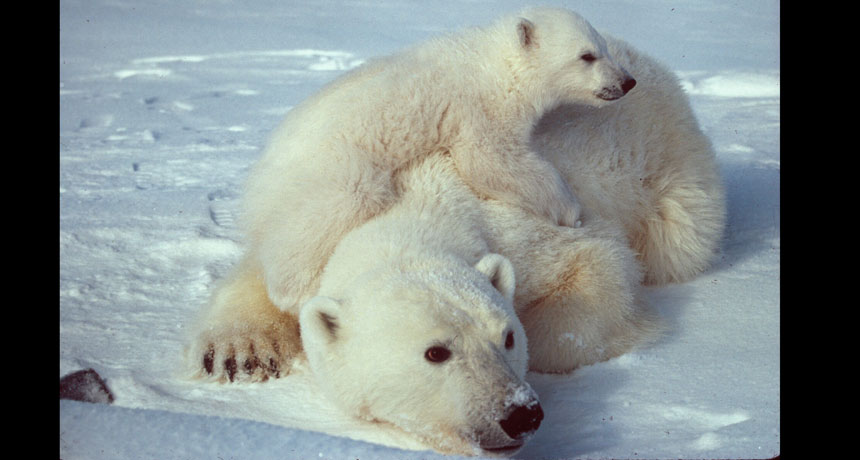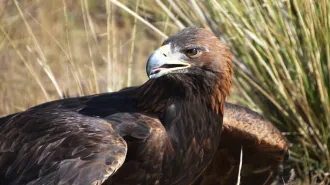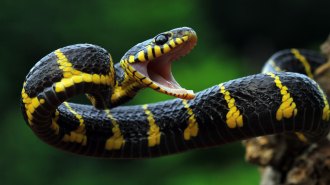Animal moms sacrifice a lot — sometimes even themselves

To ensure her cub is healthy, a mama polar bear stays in her den for months without eating or drinking.
Scott Schliebe/U.S. Fish and Wildlife Service/Wikimedia Commons
In the animal world, just like the human one, sometimes it’s not easy being mom. Fellow blogger Laura Sanders will tell you all about the trials and tribulations of being a mother to Homo sapiens. But some moms of the animal kingdom make sacrifices that go far beyond carrying a baby for nine months or paying for college.
Binge-eating sea otters
Adult female sea otters spend six months out of every year nursing at least one pup, sometimes two. Feeding herself isn’t easy — she’s got to eat the equivalent of 20 to 25 percent of her body mass every day to survive. But that amount has to increase while she’s nursing. By the time a pup is weaned at six months old, mom has to nearly double her food intake, researchers reported last year in the Journal of Experimental Biology. And to make matters worse, sometimes her kid will steal her food.
Single, starving mom
About two months before giving birth, a polar bear will enter her maternity den, remaining there for four to eight months. She stays holed up for that entire time, never eating, never drinking. Her cubs, only about half a kilogram at birth, grow quickly feeding on mom’s rich milk. And once they’re big enough to venture out, mama bear leads her babies straight to the sea so she can finally catch herself a meal.
Walled in by poo
Various species of Asian hornbills all share a similar nesting strategy: To protect her eggs from predators, mom walls herself up in a tree with a combination of mud, feces and regurgitated fruit. She leaves one tiny hole, through which dad feeds her for up to four months when mother and children are finally ready to emerge.
Endless sleepless nights
Human babies are known for their ability to rouse mom with their cries and prevent her from getting much sleep. But orca and dolphin moms don’t sleep at all for a month or more after they give birth. Unlike human babies that need a lot of sleep, tiny orcas and dolphins don’t sleep in the weeks after they’re born. That means no sleep for mom.
It’s mom for dinner
There’s a hint in the name of a limbless amphibian called Microcaecilia dermatophaga — young caecilians eat the skin of their mother, researchers reported in 2013 in PLOS ONE. But in a recent issue of Science News, Susan Milius highlighted an even more disgusting case of mom serving herself up for her kids: A female Stegodyphus lineatus spider feeds her young on a regurgitated slurry made up of the last meals she’ll ever eat — and her own guts. Milius writes:
“As liquid wells out on mom’s face, spiderlings jostle for position, swarming over her head like a face mask of caramel-colored beads. This will be her sole brood of hatchlings, and she regurgitates 41 percent of her body mass to feed her spiderlings.”
The next time your mom talks about how much she sacrificed for you, say thanks, but remember, at least you didn’t eat her stomach.







